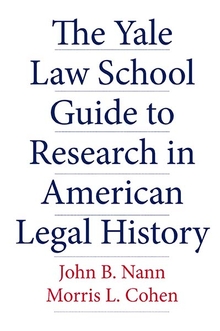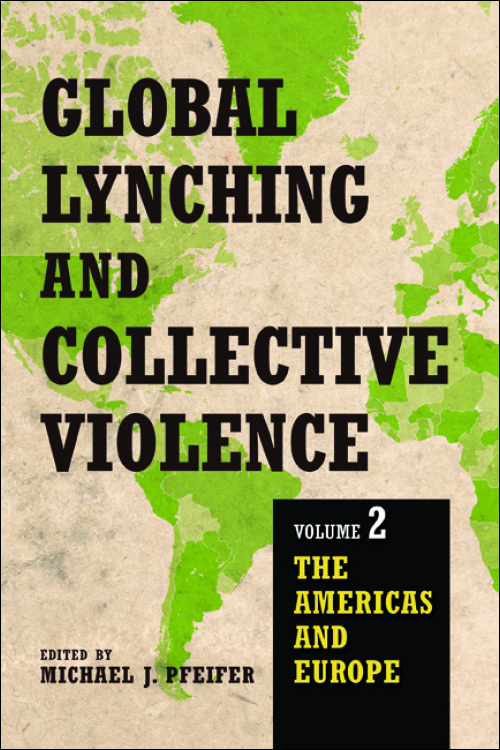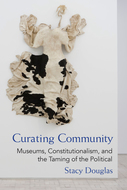[We have the following call for papers.]
2019 Law and Humanities Junior Scholars WorkshopColumbia Law School, Georgetown University Law School, Stanford Law School, UCLA School of Law, the University of Pennsylvania, and the University of Southern California Center for Law, History, and Culture invite submissions for the thirteenth meeting of the Law and Humanities Junior Scholars Workshop, to be held at Penn Law School in Philadelphia, PA, on June 2 and 3, 2019.
About the WorkshopThe paper competition is open to untenured professors, advanced graduate students, and post-doctoral scholars in law and the humanities. In addition to drawing from numerous humanistic fields, we welcome critical, qualitative work in the social sciences. Based on anonymous evaluation by an interdisciplinary selection committee, between five and ten papers will be chosen for presentation at the June Workshop. At the Workshop, two senior scholars will comment on each paper. Commentators and other Workshop participants will be asked to focus specifically on the strengths and weaknesses of the selected scholarly projects, with respect to subject and methodology. The selected papers will then serve as the basis for a larger conversation among all the participants about the evolving standards by which we judge excellence and creativity in interdisciplinary scholarship, as well as about the nature of interdisciplinarity itself.
The selected papers will appear in a special issue of the Legal Scholarship Network; there is no other publication commitment. (We will accommodate the wishes of chosen authors who prefer not to have their paper posted publicly with us because of publication commitments to other journals.)
The Workshop will pay the domestic travel and hotel expenses of authors whose papers are selected for presentation. For authors requiring airline travel from outside the United States, the Workshop will cover such travel expenses up to a maximum of $1000.
Submission InstructionsPapers must be works-in-progress that do not exceed 15,000 words in length (including footnotes/ endnotes); most papers selected for inclusion in recent years have been at least 10,000 words long. An abstract of no more than 200 words must also be included with the paper submission. A dissertation chapter may be submitted, but we strongly suggest that it be edited so as to stand alone as a piece of work with its own integrity. A paper that has been submitted for publication is eligible for selection so long as it will not be in galley proofs or in print at the time of the Workshop; it is important that authors still be in a position at the time of the Workshop to consider comments they receive there and to incorporate them as they think appropriate in their revisions.
We ask that those submitting papers be careful to omit or redact any information in the body of the paper that might serve to identify them, as we adhere to an anonymous or “blind” selection process.
Submissions (in Microsoft Word—no pdf files, please) will be accepted until December 1, 2018, and should be sent by e-mail to: juniorscholarsworkshop@sas.upenn.edu. Please be sure to include your name, institutional affiliation (if any), and phone and e-mail contact information in your covering email, not in the paper itself.
For more information, please send an email inquiry to juniorscholarsworkshop@sas.upenn.edu.
To see selected papers from previous years’ workshops, go [
here.]
Anne Dailey, University of Connecticut Law School
Katherine Franke, Columbia Law School
Sarah Barringer Gordon, University of Pennsylvania
Nan Goodman, University of Colorado
Ariela Gross, University of Southern California
Martha Jones, Johns Hopkins University
Naomi Mezey, Georgetown University Law Center
Paul Saint-Amour, University of Pennsylvania
Hilary Schor, University of Southern California
Norman Spaulding, Stanford Law School
Clyde Spillenger, UCLA School of Law
Nomi Stolzenberg, University of Southern California
Martha Umphrey, Amherst College
Conveners, 2019 Law and Humanities Junior Scholars Workshop
 In The Times Literary Supplement is a review of What is the History of the Book? by James Raven.
In The Times Literary Supplement is a review of What is the History of the Book? by James Raven. In The New Republic, Michael Kazin reviews Jill Lepore's These Truths: A History of the United States.
In The New Republic, Michael Kazin reviews Jill Lepore's These Truths: A History of the United States.






















